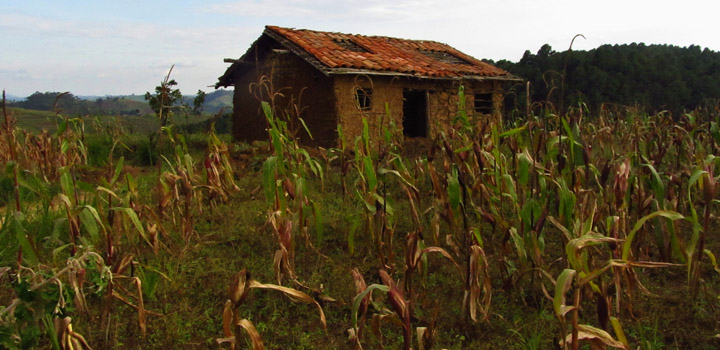poverty
See the following -
A Free, Open Resource to Solve Our Third World Problems
 Corruption, poverty, war, hunger, healthcare, education, safety. These are only a few of the problems faced by people in developing countries. Many of these problems are caused by exclusion, fear, intimidation, broken infrastructure, and lack of money, resources, access to information, and tools. These are hard problems to solve but, as Theodore Roosevelt said: "Nothing in this world is worth having or worth doing unless it means effort, pain, difficulty." At the core of open source are communities. Communities of like-minded individuals, working together, openly and freely sharing ideas and solutions for the benefit of others...
Corruption, poverty, war, hunger, healthcare, education, safety. These are only a few of the problems faced by people in developing countries. Many of these problems are caused by exclusion, fear, intimidation, broken infrastructure, and lack of money, resources, access to information, and tools. These are hard problems to solve but, as Theodore Roosevelt said: "Nothing in this world is worth having or worth doing unless it means effort, pain, difficulty." At the core of open source are communities. Communities of like-minded individuals, working together, openly and freely sharing ideas and solutions for the benefit of others...
- Login to post comments
Advancing Antimalarial Drug Research Through Open Source Initiatives
Open research can lead to new drugs tackling diseases that afflict the world's poor. But first, more scientists need to buy into contributing to something bigger than their careers Read More »
- Login to post comments
Africa's Mineral Wealth Hardly Denting Poverty Levels, Says World Bank
Report finds discovery of oil and mineral resources doing little to improve prospects for poor people, whose lot may even worsen Read More »
- Login to post comments
Africa: Partners Commit To Bolster Open Source Research
The Royal Society of Chemistry (RSC), UK, Drugs for Neglected Diseases initiative (DNDi) and MMV have signed a memorandum of understanding (MoU) to collaborate in an effort to build a global community of researchers contributing to open source drug discovery for diseases of poverty. Read More »
- Login to post comments
Agricultural Policies in Africa Could Be Harming the Poorest
 Published this month in the journal World Development, the study finds that so-called ‘green revolution’ policies in Rwanda - claimed by the government, international donors and organisations such as the International Monetary Fund to be successful for the economy and in alleviating poverty - may be having very negative impacts on the poorest. One of the major strategies to reduce poverty in sub-Saharan Africa is through policies to increase and modernise agricultural production...
Published this month in the journal World Development, the study finds that so-called ‘green revolution’ policies in Rwanda - claimed by the government, international donors and organisations such as the International Monetary Fund to be successful for the economy and in alleviating poverty - may be having very negative impacts on the poorest. One of the major strategies to reduce poverty in sub-Saharan Africa is through policies to increase and modernise agricultural production...
- Login to post comments
As Gap Between Rich And Poor Widens, Global Safety Net In Danger
Advances in human development risk being erased without a renewed global commitment to eradicating inequality, tackling climate change, and providing basic services, according to the UN's 2014 Human Development Report, Sustaining Human Progress: Reducing Vulnerabilities and Enhancing Resilience (pdf), released Thursday in Tokyo, Japan. Read More »
- Login to post comments
ASAP Awards – Interview With Nitika Pant Tai
Communities with limited wealth suffer of diseases in a way that many of us may never come to be confronted with. Poverty befriends disease, and many diseases befriend shame. Read More »
- Login to post comments
At Datajam, Innovators And Entrepreneurs Unleash Open Data For Global Development
A remarkable new tool is becoming increasingly available to help end extreme poverty and ensure dignity and opportunity for people around the world—a tool that few people think about when they consider how to bolster international development efforts. That tool is data, and in particular “open data“. [...] Read More »
- Login to post comments
Australia's Boom Is Anything But For Its Aboriginal People
Eleven miles by ferry from Perth is Western Australia's "premier tourist destination". This is Rottnest Island, whose scabrous wild beauty and isolation evoked, for me, Robben Island in South Africa. Empires are never short of devil's islands; what makes Rottnest different – indeed, what makes Australia different – is silence and denial on an epic scale. Read More »
- Login to post comments
Chefs & Local Food Advocates Head To Washington To Support Food Stamp Nutrition Incentives At Farmers Market
With nearly a dozen chefs at their side, local food advocates visited Capitol Hill today to encourage lawmakers to support legislation that would provide federally funded nutrition incentives in the upcoming farm bill... Read More »
- Login to post comments
Child Homelessness Up 33% in 3 Years [USA]
One in 45 children in the USA — 1.6 million children — were living on the street, in homeless shelters or motels, or doubled up with other families last year, according to the National Center on Family Homelessness. The numbers represent a 33% increase from 2007, when there were 1.2 million homeless children, according to a report the center is releasing Tuesday.
- Login to post comments
Could Yellow Fever Return To The United States?
Peter Hotez and Kristy Murray from Baylor College of Medicine highlight the potential for yellow fever to return to the southern cities of the United States Read More »
- Login to post comments
Do We Need To Know What’s In Junk Food?
In the continuing effort to fight obesity in the U.S., the Food and Drug Administration is reviewing its nutrition labeling guidelines. The agency is re-evaluating serving sizes and considering the placement of calorie and nutrition labels on the front of food packages, from cereals to soups to candy. Read More »
- Login to post comments
Early Bird Registration Now Open For ICT4D Conference
Registration is open for the Game Changers Summit, a technology conference designed to help churches, universities and organizations connect their global mission agendas with technology solutions for the developing world. Read More »
- Login to post comments
Economic Slowdown Tied To Rise In Obesity In Richer Nations: OECD
The rate of obesity continues to climb across the world's most developed countries, with certain nations and groups of people such as women and the poor hit harder by the recent economic crisis, the OECD said on Tuesday. Read More »
- Login to post comments